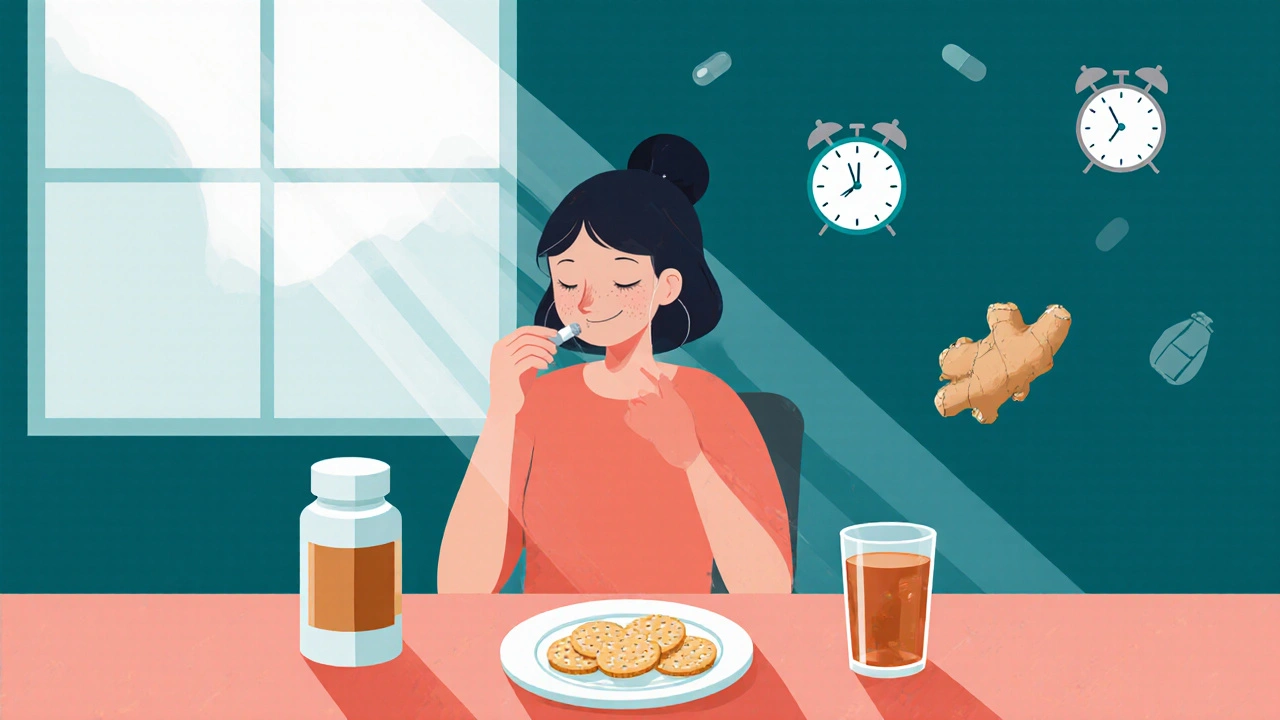Learn practical ways to prevent and relieve nausea and vomiting caused by medications, from food tips to proven antiemetics. Find out what works, what doesn’t, and when to call your doctor.
Antiemetic Strategies: What Works and When to Use Them
When nausea and vomiting hit, you don’t need guesswork—you need antiemetic strategies, practical approaches to stop or prevent nausea and vomiting. Also known as anti-nausea treatments, these strategies range from prescription meds to simple lifestyle fixes, and they’re used every day by people recovering from surgery, undergoing chemotherapy, dealing with pregnancy, or just fighting a bad stomach bug. The goal isn’t just to feel better for a few hours—it’s to stop the cycle before it ruins your day, your sleep, or your ability to keep food down.
Not all antiemetic drugs, medications designed to prevent or reduce vomiting work the same way. Some target the brain’s vomiting center, like ondansetron or metoclopramide. Others calm the stomach directly, like dimenhydrinate for motion sickness. Then there are natural options—ginger, acupressure, or even deep breathing—that help some people as much as pills. The key is matching the cause to the tool. Chemo-induced nausea? You’ll likely need a stronger drug like aprepitant. Morning sickness? Vitamin B6 or doxylamine might be all you need. A stomach virus? Sometimes hydration and rest are the best antiemetic strategy of all.
What makes this confusing is that what works for one person can fail for another. A drug that stops nausea after surgery might do nothing for someone with migraines. And side effects matter—some antiemetics make you drowsy, others cause dry mouth or even strange movements. That’s why knowing your triggers and your body’s response is part of the strategy. It’s not just about popping a pill; it’s about understanding why you’re nauseated in the first place. Are you dehydrated? Overstimulated? Taking a drug that irritates your stomach? Fixing the root can be more effective than fighting the symptom.
You’ll find real-world examples in the posts below—from how to manage nausea during cancer treatment to how to avoid vomiting after anesthesia, and even how to handle motion sickness without reaching for the strongest pills. These aren’t theory pieces. They’re guides written by people who’ve seen what works in clinics, pharmacies, and homes. Whether you’re a patient, a caregiver, or just someone tired of feeling sick, this collection gives you the facts without the fluff. No marketing. No hype. Just what helps, what doesn’t, and why.

